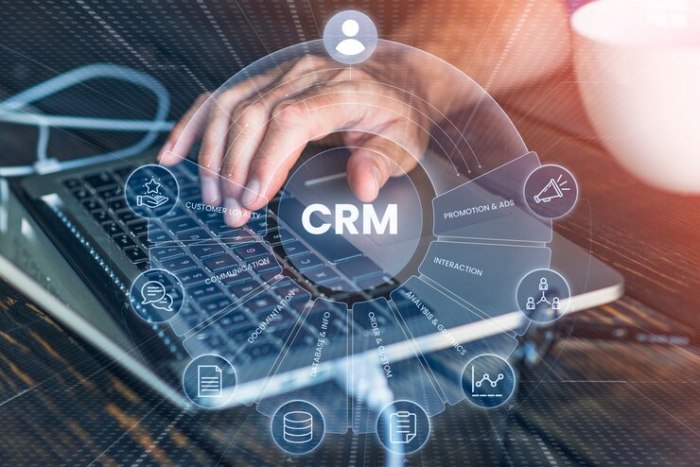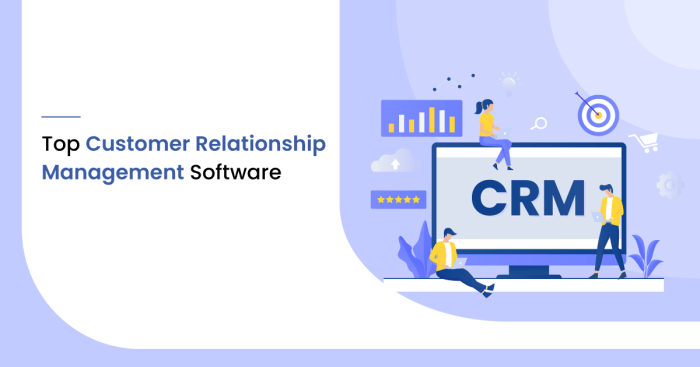Customer service software crm – In today’s competitive landscape, exceptional customer service is no longer a luxury—it’s a necessity. To effectively manage interactions, track customer journeys, and foster loyalty, businesses increasingly rely on Customer Service Software integrated with CRM (Customer Relationship Management) systems. This comprehensive guide delves into the intricacies of these powerful tools, exploring their features, benefits, and how they can transform your customer service operations.
Understanding Customer Service Software and CRM Integration
Customer service software and CRM systems are often intertwined, working synergistically to provide a holistic view of the customer. While CRM focuses on managing customer relationships across the entire lifecycle, customer service software specifically addresses the interactions and support provided to customers. The integration allows for seamless access to customer data, streamlining processes and enhancing the overall customer experience.

Source: emblemwealth.com
Key Features of Integrated Customer Service Software and CRM:
- Ticketing System: Efficiently manage incoming inquiries via email, phone, chat, and social media, organizing them into tickets for tracking and resolution.
- Knowledge Base: Provide self-service options through a readily accessible database of FAQs, articles, and troubleshooting guides, reducing the volume of support tickets.
- Live Chat: Offer immediate assistance to customers through real-time chat functionality, improving response times and enhancing customer satisfaction.
- Call Center Software: Manage inbound and outbound calls, track call duration, and record conversations for quality assurance and training purposes. Features like call routing and IVR (Interactive Voice Response) systems can also be integrated.
- Email Management: Centralize and manage customer emails, automate responses, and track email interactions within the system.
- Social Media Integration: Monitor social media channels for mentions of your brand and address customer queries or complaints directly from the platform.
- Reporting and Analytics: Gain valuable insights into customer service performance through comprehensive reporting dashboards, tracking key metrics like resolution time, customer satisfaction (CSAT), and Net Promoter Score (NPS).
- Customer Segmentation: Group customers based on shared characteristics, allowing for personalized support and targeted campaigns.
- Workflow Automation: Automate repetitive tasks such as ticket assignment, email notifications, and follow-ups, freeing up agents to focus on more complex issues.
- Integration with other business tools: Seamlessly integrate with other systems like e-commerce platforms, marketing automation tools, and accounting software for a unified view of customer data.
Benefits of Implementing Customer Service Software and CRM: Customer Service Software Crm
The benefits of a robust customer service software and CRM integration extend beyond improved efficiency. They contribute significantly to enhanced customer satisfaction, increased revenue, and strengthened brand reputation.
Improved Customer Experience:
- Faster Response Times: Streamlined processes and automated workflows ensure quicker resolutions to customer issues.
- Personalized Interactions: Access to comprehensive customer data allows for tailored support and more meaningful engagement.
- Omnichannel Support: Provide seamless support across multiple channels, allowing customers to choose their preferred method of communication.
- Proactive Support: Identify potential issues and proactively reach out to customers before they escalate into major problems.
Increased Efficiency and Productivity:
- Automated Tasks: Reduce manual effort by automating repetitive tasks, freeing up agents to handle more complex issues.
- Improved Collaboration: Enhance team collaboration through shared access to customer data and communication tools.
- Reduced Operational Costs: Optimize resource allocation and minimize operational expenses through efficient processes.
Enhanced Business Growth:, Customer service software crm
- Increased Customer Loyalty: Positive customer experiences foster loyalty and repeat business.
- Improved Brand Reputation: Exceptional customer service builds a positive brand image and strengthens customer trust.
- Higher Customer Lifetime Value (CLTV): Loyal customers contribute significantly to increased revenue over time.
Choosing the Right Customer Service Software and CRM
Selecting the appropriate software depends on several factors, including business size, budget, specific needs, and integration requirements. Consider the following aspects when making your decision:
Key Considerations:
- Scalability: Choose a solution that can grow with your business.
- Integration Capabilities: Ensure seamless integration with existing systems.
- User-Friendliness: Select a system that is intuitive and easy for your team to use.
- Reporting and Analytics: Look for robust reporting capabilities to track key performance indicators (KPIs).
- Pricing and Support: Evaluate pricing models and the level of support offered by the vendor.
Popular Customer Service Software and CRM Platforms
Numerous platforms offer integrated customer service and CRM functionalities. Some popular choices include:
- Salesforce Service Cloud: A comprehensive solution offering a wide range of features and integrations.
- Zendesk: A popular choice for businesses of all sizes, known for its user-friendly interface and scalability.
- HubSpot Service Hub: A powerful option integrated with HubSpot’s marketing and sales tools.
- Freshdesk: A cost-effective solution with a strong focus on customer support.
- Microsoft Dynamics 365 Customer Service: A robust platform integrated with the Microsoft ecosystem.
Frequently Asked Questions (FAQ)
- Q: What is the difference between CRM and customer service software? A: CRM manages all customer interactions across the entire lifecycle, while customer service software focuses specifically on support and issue resolution. They often work together seamlessly.
- Q: How much does customer service software cost? A: Pricing varies greatly depending on the features, scalability, and vendor. Expect a range from affordable monthly subscriptions to enterprise-level solutions with higher costs.
- Q: How can I measure the success of my customer service software? A: Track key metrics such as CSAT, NPS, resolution time, first contact resolution (FCR), and ticket volume.
- Q: What are the benefits of integrating my customer service software with my CRM? A: Integration provides a 360-degree view of the customer, enabling personalized support, improved efficiency, and better decision-making.
- Q: Is cloud-based customer service software better than on-premise? A: Cloud-based solutions offer greater flexibility, scalability, and accessibility, while on-premise solutions might offer greater control and customization but require more IT infrastructure.
Conclusion
Implementing effective customer service software and CRM is crucial for businesses aiming to thrive in today’s competitive market. By leveraging these tools, businesses can enhance customer experiences, boost efficiency, and drive significant growth. Choosing the right platform requires careful consideration of your specific needs and long-term goals. Start exploring the options available and take the first step towards transforming your customer service operations.
References
- Salesforce Service Cloud
- Zendesk
- HubSpot Service Hub
- Freshdesk
- Microsoft Dynamics 365 Customer Service
Call to Action
Ready to elevate your customer service? Contact us today for a free consultation to discuss your needs and explore the best solutions for your business.
Common Queries
What are the key features of customer service software CRM?

Source: kbfdesigner.com
Key features often include ticketing systems, knowledge bases, live chat integration, email management tools, reporting and analytics dashboards, and contact management capabilities.

Source: softwaresuggest.com
How much does customer service software CRM cost?
Pricing varies greatly depending on the vendor, features, and number of users. Expect a range from affordable monthly subscriptions to enterprise-level solutions with higher costs.
How do I choose the right customer service software CRM for my business?
Consider your business size, budget, specific needs (e.g., industry-specific features), and the level of integration with existing systems. Trial periods and demos are highly recommended.
What is the learning curve for using customer service software CRM?
The learning curve varies depending on the software’s complexity and user-friendliness. Most vendors offer training resources and support to facilitate onboarding.
